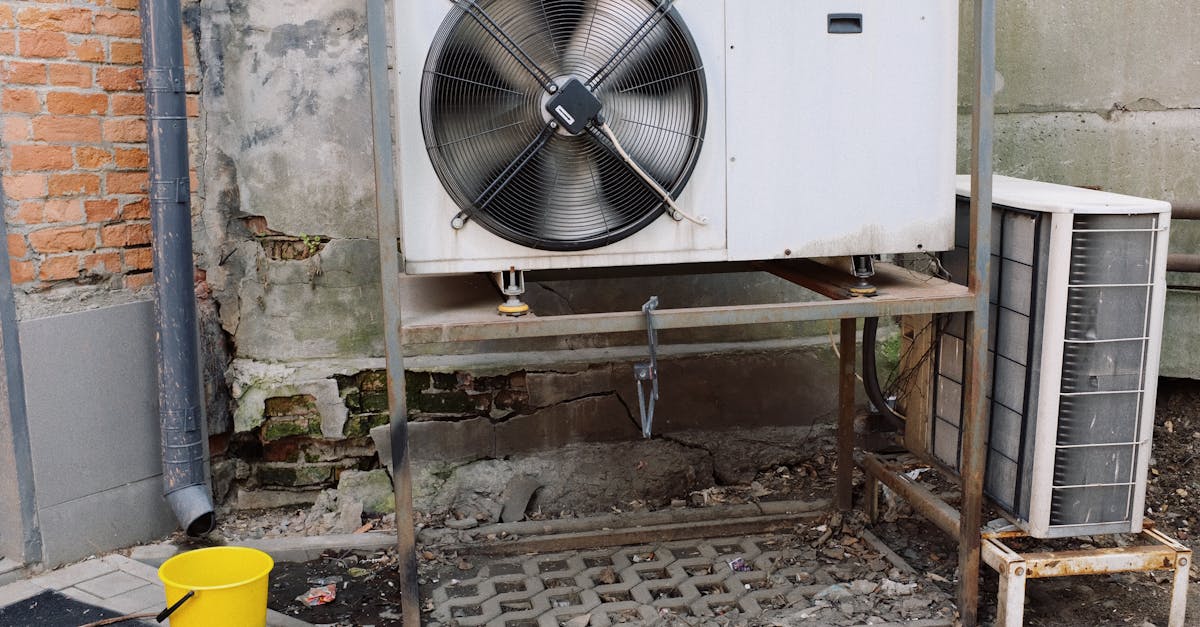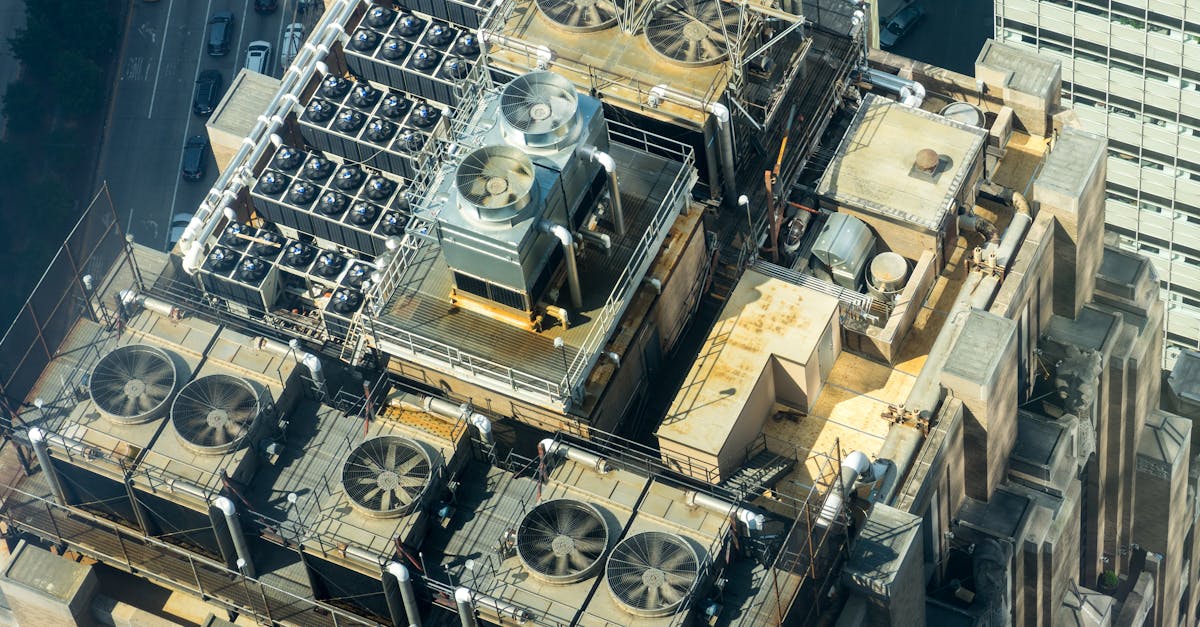
Maintenance Needs
Maintenance needs in commercial HVAC systems are often more extensive than those in residential setups. Commercial units are typically larger and more complex, requiring regular inspections to ensure optimal performance. The frequency and depth of maintenance tasks can vary depending on the type of system installed and the size of the building. The aim is to prevent breakdowns that could disrupt business operations, leading to financial losses.
For property managers, engaging professional services like Commercial HVAC Services Upper Northside, La Crosse can streamline maintenance processes. These specialists are trained to address the unique demands of commercial systems, which may include additional components such as multiple zones and advanced air handling units. Regular maintenance not only enhances efficiency but also extends the lifespan of the equipment, proving crucial for maintaining a comfortable environment in commercial spaces.
Routine Maintenance for Commercial vs. Residential Units
Routine maintenance for commercial HVAC systems often requires a more complex and rigorous approach compared to residential units. Commercial systems typically have larger capacities and serve multiple zones, making regular inspections crucial to ensure optimal performance. Service schedules may happen quarterly or even monthly, depending on the specific requirements of the building and local regulations. Technicians assess not just the mechanical components but also the ductwork and control systems, ensuring everything operates efficiently.
In contrast, residential HVAC maintenance usually involves more straightforward tasks performed less frequently. Homeowners might schedule checks twice a year, focusing primarily on filters, blowers, and thermostats. The scale of work is smaller, thus requiring less time and specialized equipment. However, seasonal checks remain essential to prolong the system's lifecycle and improve energy efficiency. For businesses in need of professional care, companies offering Commercial HVAC Services 23rd & 24th Sts Historic District, La Crosse, can provide tailored solutions to meet commercial needs effectively.
Cost Implications
Initial costs for commercial HVAC systems tend to be higher than those for residential setups. This increase arises from the larger size of commercial units, which requires more robust materials and advanced engineering. Furthermore, commercial systems are often designed for greater efficiency and durability, aimed at handling larger spaces and more demanding operational schedules. These factors contribute significantly to the overall investment needed from businesses in that arena.
Operational costs also differ between commercial and residential systems. Businesses may experience variable utilities expenses based on their occupancy rates and specific usage patterns. While residential units generally have predictable energy costs, commercial HVAC systems can fluctuate based on factors like seasonal demands and system maintenance. For specialized needs, seeking Commercial HVAC Services Lakota Village, La Crosse can assist businesses in managing these costs effectively and ensuring optimal performance.
Initial Investment and Operational Costs
When comparing the initial investment of commercial and residential HVAC systems, the differences become evident. Commercial systems usually require larger and more complex equipment, which increases upfront costs. Installation often demands specialized labor and settings, given the higher capacity and custom designs needed for varied business spaces. Businesses must consider these factors when budgeting for HVAC systems.
Operational costs also diverge significantly between commercial and residential setups. Commercial units often operate for longer hours and require higher energy output, leading to steeper utility bills. Maintenance and repairs can also vary, with commercial HVAC services like Commercial HVAC Services Bluffview Park, La Crosse, often providing tailored service packages that cater to the specific needs of larger systems. This proactive maintenance can mitigate potential downtimes and enhance overall efficiency.
Control Systems
Control systems play a crucial role in the functionality and efficiency of HVAC systems, whether for commercial or residential use. Commercial systems often utilize more sophisticated control technologies, allowing for centralized management of multiple units across a building. These systems can integrate various functionalities, including temperature control, humidity management, and air quality monitoring. Such capabilities are essential for ensuring consistent comfort and optimal performance in larger spaces.
In contrast, residential HVAC systems typically employ simpler, standalone control mechanisms. Homeowners often rely on programmable thermostats or basic control panels to manage their heating and cooling needs. While residential systems can incorporate smart technology, the scale and complexity seen in commercial setups are generally not present. For businesses seeking to optimize their HVAC efficiency, exploring options such as Commercial HVAC Services Grand Crossing, La Crosse can prove beneficial in implementing advanced control solutions.
Smart Technology in Commercial vs. Residential HVAC
Smart technology has made significant strides in the HVAC industry, particularly in the commercial sector. Businesses often require sophisticated systems that can handle large spaces and varying occupancy levels. These systems utilize advanced sensors and smart thermostats to optimize energy use and maintain comfortable temperatures. Features such as remote monitoring and real-time data analytics allow commercial entities to make informed decisions about their HVAC operations, ensuring efficiency and reducing costs over time.
In contrast, residential HVAC systems typically focus on user-friendly interfaces designed for individual households. While smart home technology is becoming increasingly popular among homeowners, the complexity of commercial systems often necessitates a more robust approach to integration. Companies offering commercial HVAC services, such as Commercial HVAC Services Powell-Poage-Hamilton, La Crosse, understand the unique demands of larger installations and can tailor solutions that leverage smart technology for improved performance and reliability.
FAQS
What are the main differences between commercial and residential HVAC systems?
The main differences include size, complexity, maintenance needs, and control systems. Commercial HVAC systems are larger and more complex, designed to handle greater demands, while residential systems are typically smaller and simpler.
How often should I perform maintenance on commercial HVAC systems compared to residential systems?
Commercial HVAC systems usually require more frequent maintenance due to their larger size and heavier usage, often needing inspections quarterly or monthly, while residential systems typically require service twice a year.
Are the costs associated with commercial HVAC systems significantly higher than residential ones?
Yes, commercial HVAC systems generally involve higher initial investments and operational costs due to their complexity, size, and the need for more advanced technology and maintenance.
Is smart technology more common in commercial HVAC systems?
Yes, smart technology is more prevalent in commercial HVAC systems, allowing for advanced control and efficiency. Residential systems are increasingly adopting smart features but tend to have fewer options compared to commercial systems.
Can residential HVAC systems be upgraded to match commercial standards?
While it is possible to upgrade residential systems to include more advanced technology and efficiency features, the fundamental differences in size and capacity mean that they cannot fully replicate commercial systems.
